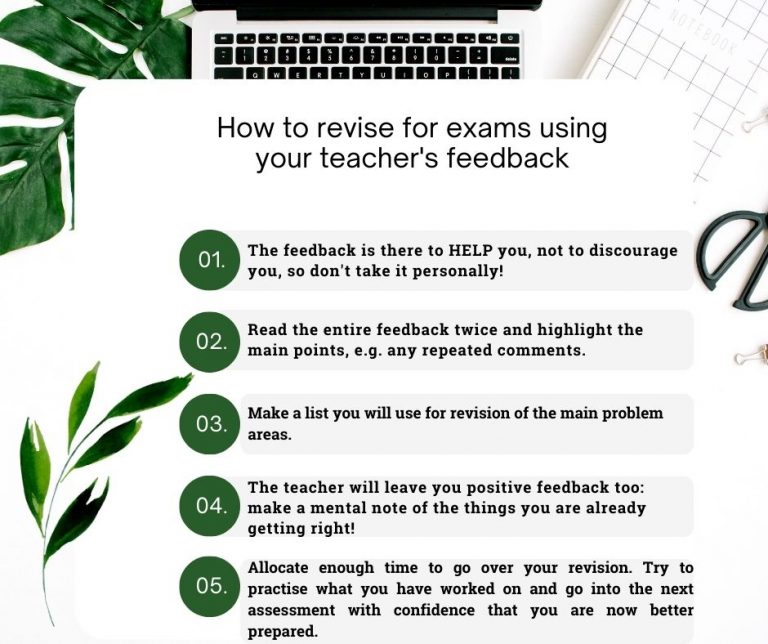
This is a short guide for our students with a few practical feedback tips. You can use them for revision and for engaging with the comments you get from teachers.
It is hard not to feel criticized when you get your assessment or mock exam back and it is full of comments and corrections. The best thing is to use a rational approach. Focus on those parts of the feedback which can actually propel your efforts and not hinder them. For example, if your French tutor comments on the lack of logical structure in your text, the best thing to do is to read the text and ask yourself if the flow of your argument is easy to follow for others. Sometimes, it can be very helpful to ask a family member or friend to over your text. A fresh pair of eyes can spot where the problems lie better than you. You may be overwhelmed by the volume of feedback tips you will get, but this is not a bad thing.
For teachers and other people who provide feedback with the intention to help, it is important to remember that “Focusing people on their shortcomings or gaps doesn’t enable learning. It impairs it.” This comment comes from an article by Marcus Buckingham and Ashley Goodall in the Harvard Business Review. We can achieve more by showing how to improve, encouragement and a positive feedback suggestions. The students engage with the comments much quicker if they contain positive words: for example: your structure is now very good, but you could try to add one more example to back your thesis.
Some teachers focus on negative feedback as they forget that writing positive feedback is equally important. Often, they simply want to save time. But going straight into talking about mistakes and problems is very discouraging. We all need to remember to include the positive points and just the negative!
